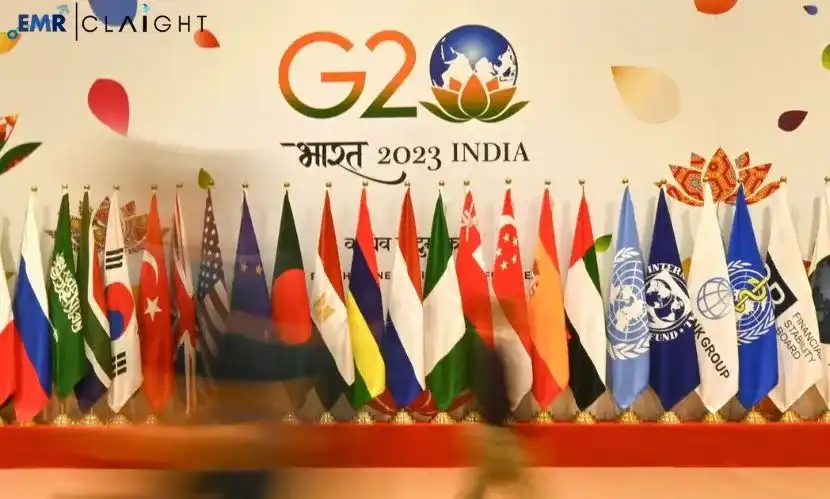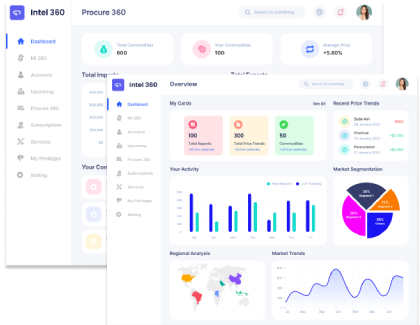The G20 Health Ministers’ Meeting held in Gandhinagar, Gujarat, India, on August 18th - 19th marked an important series of events where the G20 ministers constituting of over 70 delegates from various nations discussed the crucial health priorities across the globe and the primary challenges faced by these nations. The two-day meeting comprised four parallel events, including Advantage Health Care – India 2023, WHO Traditional Medicine Global Summit, India MedTech Expo 2023, and ‘Sustain, Accelerate and Innovate to End TB in South-East Asia Region’ Conference. The meeting was also aimed at reaffirming the countries’ commitment to strengthen the Global Health Infrastructure. Led by Union Health Minister, Dr. Mansukh Madaviya, it was also significant in terms of marking the beginning of consequential initiatives in the healthcare sector.
The key agenda of the meeting was to focus on the health issues that require urgent global attention, highlighting the need for international efforts and resources on certain issues. The main theme of G20 is ‘One Earth, One Family, One Future’, and the primary agenda was on only one motto - Universal Health Coverage (UHC), along with three key deliverables:
- Health Emergency Prepared
- Digital Health Innovation
- Pharmaceutical Cooperation Upliftment
The meeting primarily emphasised on the importance of achieving Universal Health Coverage (UHC), and how important it is to mainstream a gender perspective during the procedure of scheming the healthcare systems with contemplating the special needs of women, so that gender equality is maintained, and everyone can benefit from the new structure, irrespective of their genders. Every need should be taken into consideration, and only that way a universal coverage can be successful. The goal is to make the healthcare system so strong over the period of next couple of years that it is well-prepared for any healthcare emergency. Along with that, the system should be in line with the health-related targets of the 2030 Agenda for Sustainable Development. The key idea is to not leave anyone behind and each and every individual can rely on this healthcare system.
In collaboration with the World Health Organization, the committee announced the launch of a new initiative to support the implementation of Global Strategy on Digital Health 2020-2025. This WHO managed platform, called Global Initiative on Digital Health (GIDH), aims to provide a transparency of digital health resources, facilitating knowledge and collaboration across different parts of the world. It is one of the key deliverables of India’s G20 Presidency. The focus on digital health solutions can also provide a better insight into electronic health records, facilitating our scientists to bring in relevant technical advancements.
The G20 ministers commended India’s efforts in arranging an event which not only discussed the identified priorities but also expanded the horizon of the meeting by addressing other key challenges faced across the globe. These challenges include the efforts to reduce the prevalence of chronic diseases like tuberculosis, hypertension, and diabetes, along with discussing major global issues like climate change and youth well-being. India took a forefront approach in adding these issues to the discussion. The meeting emphasised on the need of resource sharing, collaborative research, and joint health interventions in order to fight global health issues like pandemics, bioterrorism, fatal diseases, and antimicrobial resistance, among others.
India’s presidency is likely to prove to be a major milestone in its strive to be a leading pharmaceutical nation across the globe. It would help India have a strong footprint on the global market. India has been working diligently over the past few years to strengthen its healthcare and pharmaceutical and has proved its mettle over the past, especially during the crisis of COVID-19 pandemic. India exported over USD 25 billion in pharmaceuticals to various countries in need in 2022 alone.
India is the country with the highest population and has become a major market over the past few years owing to the rapid development as well as technological advancements. The number of skilled professionals in the country has also been on a rise. With the country’s increased emphasis on improving the healthcare infrastructure, it has garnered significant popularity and more countries and interested in investing in the country. Since it is a developing country, many leading economies would also benefit due to the high FDIs in the region, low-cost production, and the easy availability of skilled yet low wage labours.
The Indian vaccine market has also had a forefront position, especially during the COVID-19 pandemic, where it successfully conducted vaccination drives across the nation. These vaccination drives were conducted for everyone, irrespective of which economic strata they belonged to, the key objective was to make the region free of the pandemic and to immune the population against the fatalities of the virus. India’s response to the pandemic also had a significant footprint on the global nation. Along with vaccine, the country has also managed to efficiently balance socialism and capitalism by manufacturing both affordable and high-end drugs. The country is one of the leading exporters of drugs and the pharma industry in terms of volume. India is also one of the leading global suppliers of the first-line anti-TB drugs. The country meets 90 per cent of the global demand for measles vaccines, showcasing its dedication to eradicate preventable diseases not just nationwide but also globally.
With G-20 Presidency, India envisions to prioritize a healthcare system that addresses innovation and sustainability as the same time. With the convergence of technology and healthcare, we can anticipate major investments from the G20 countries to optimize our presence in the healthcare and pharmaceutical industry.




















Share